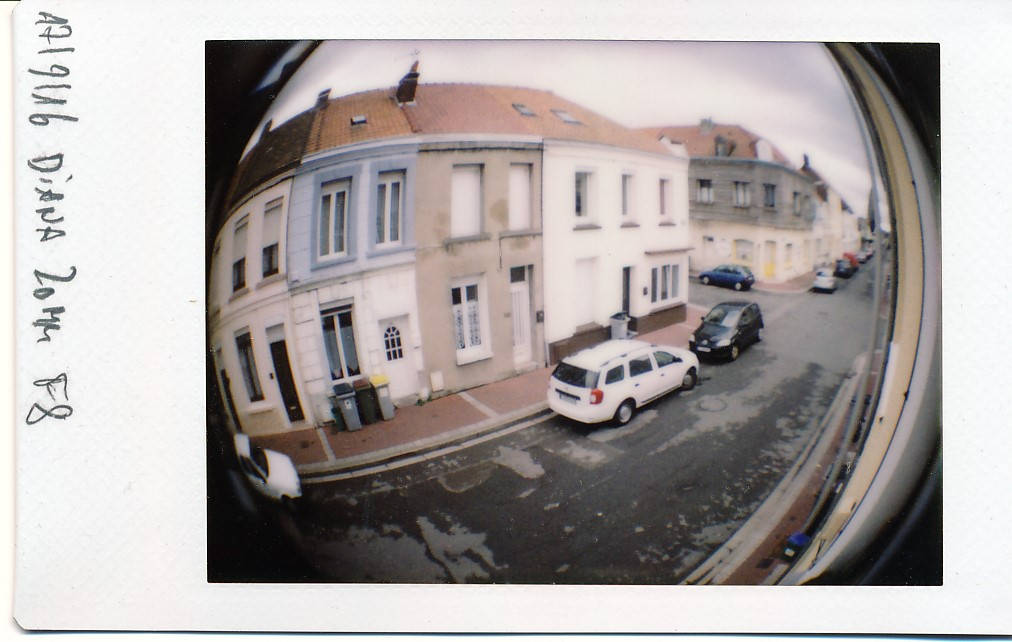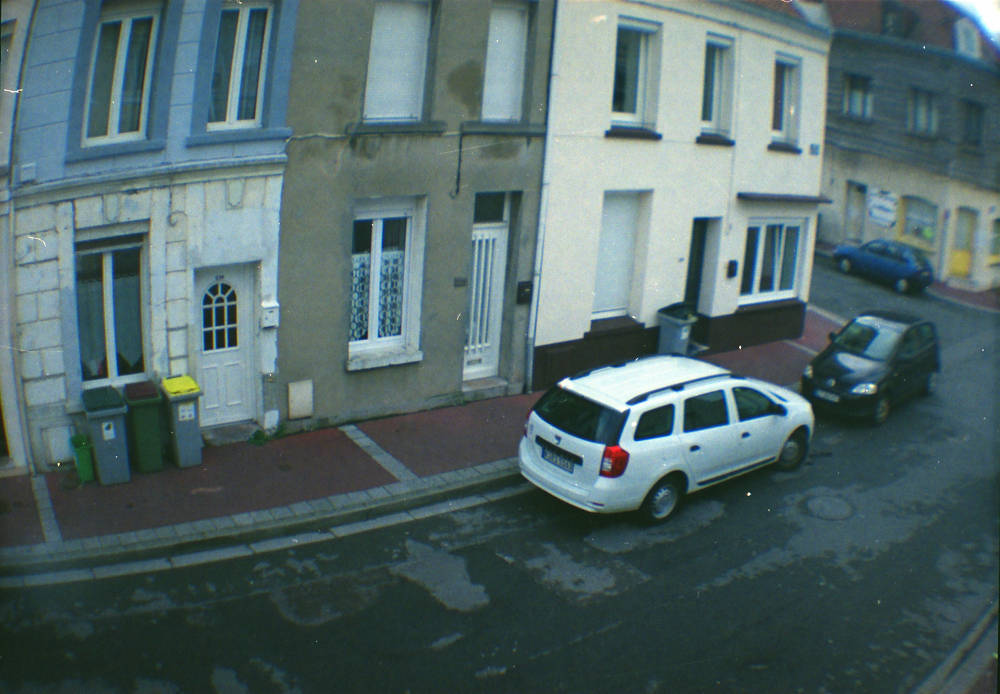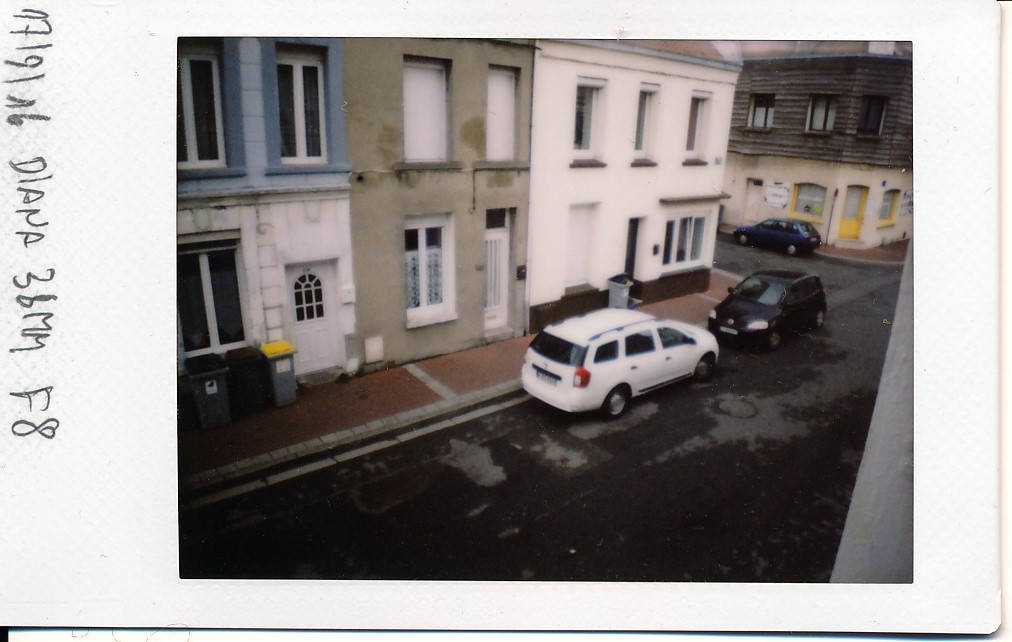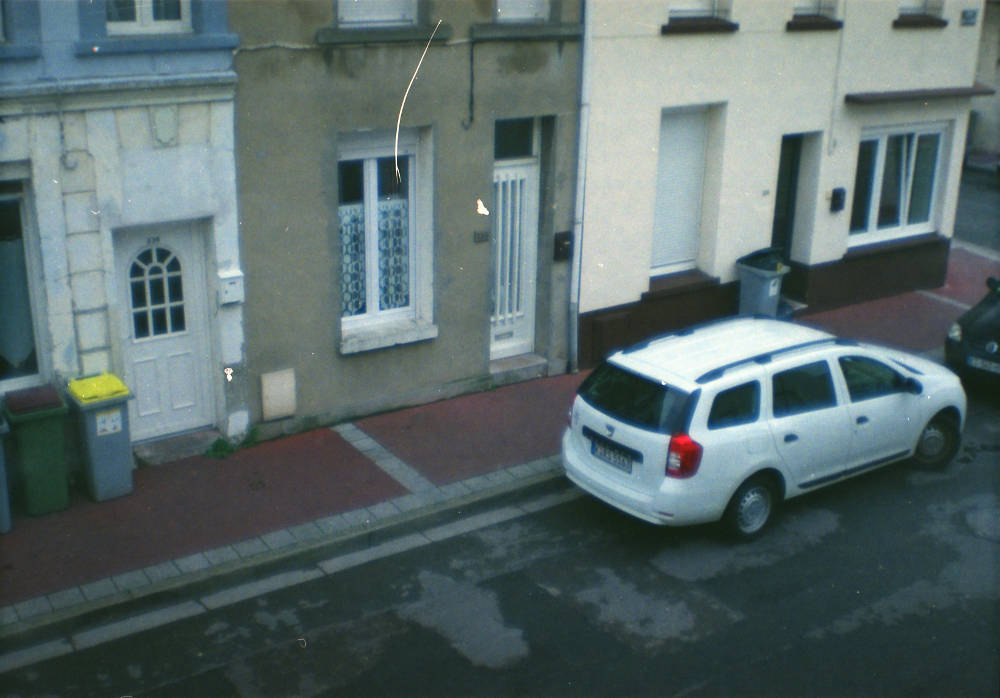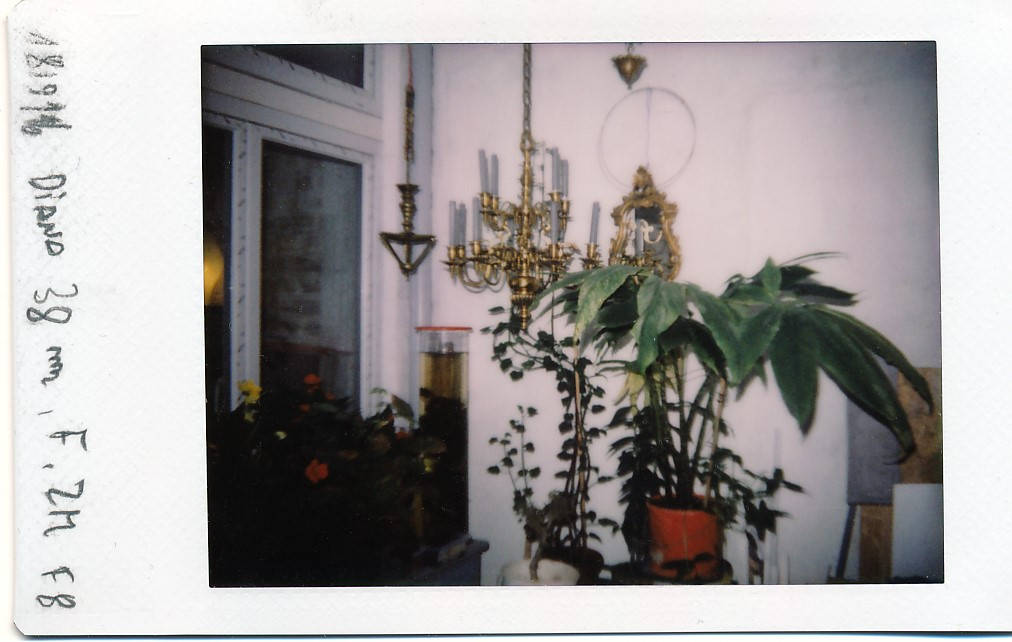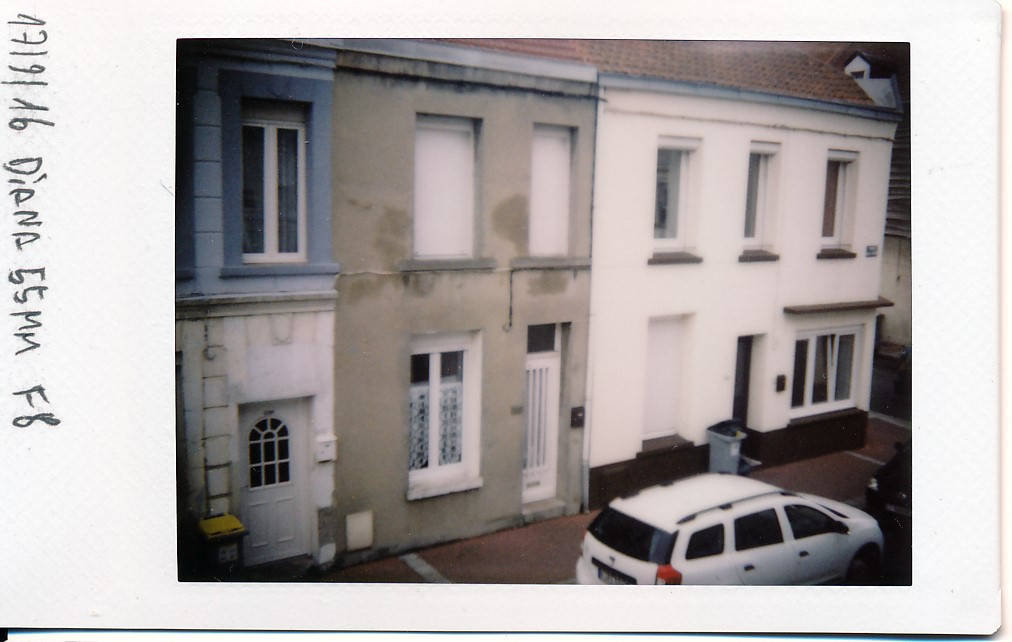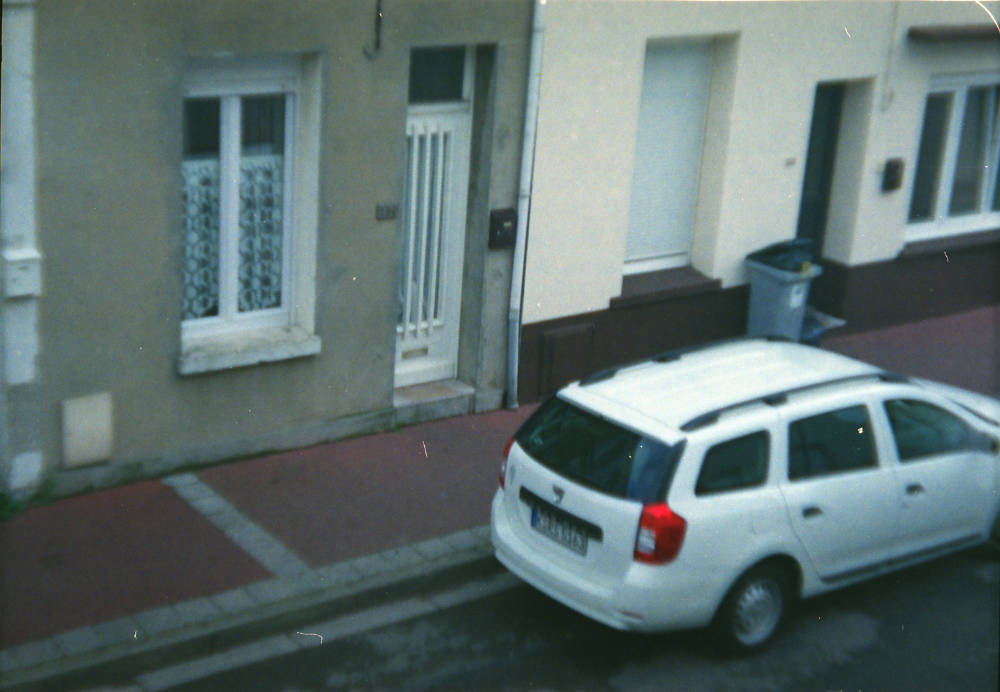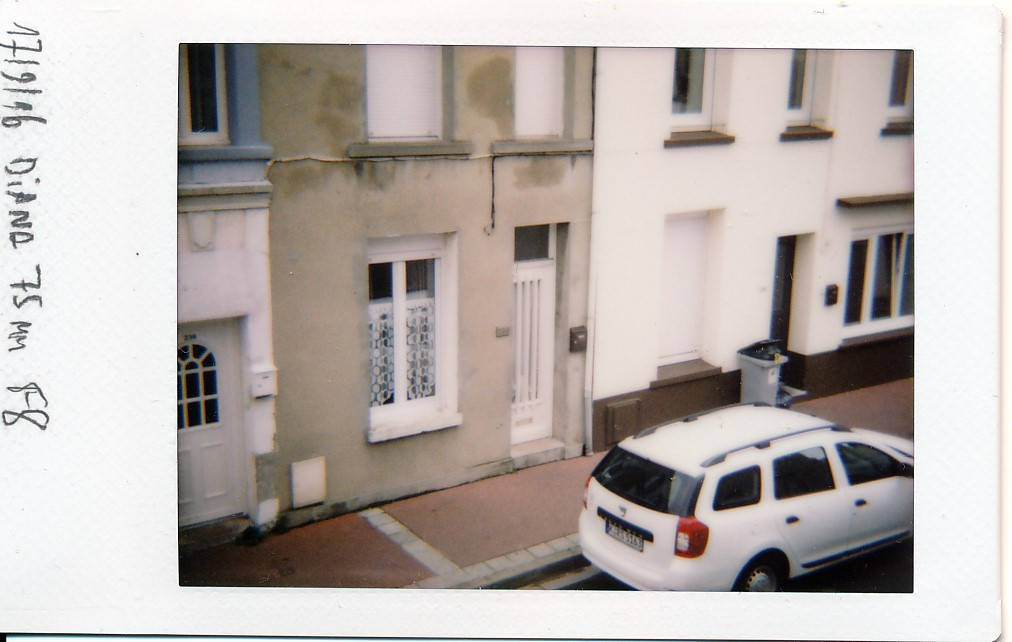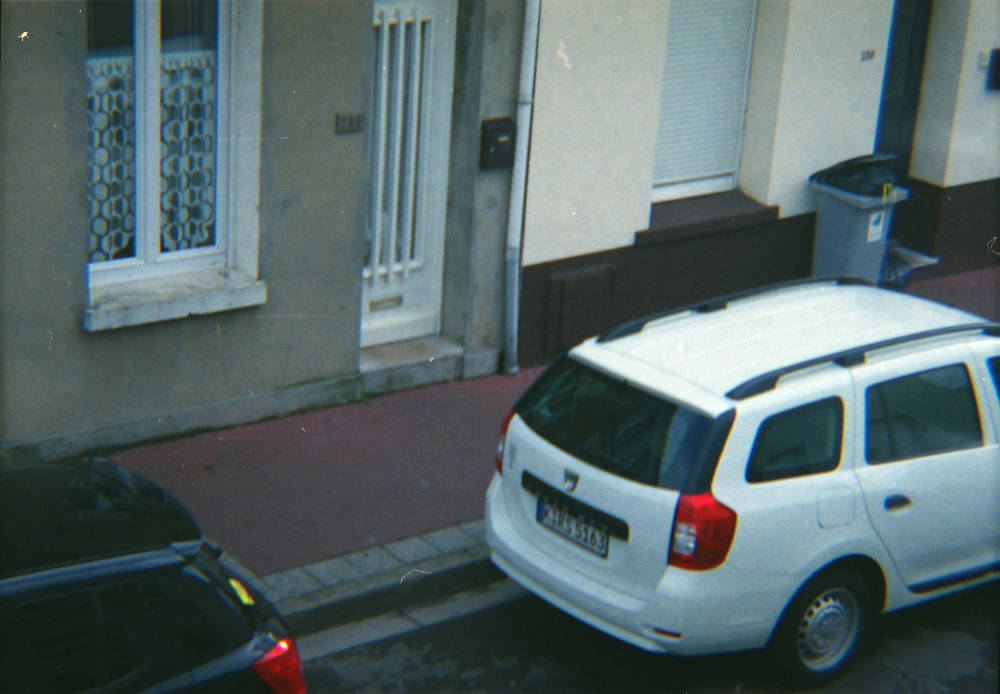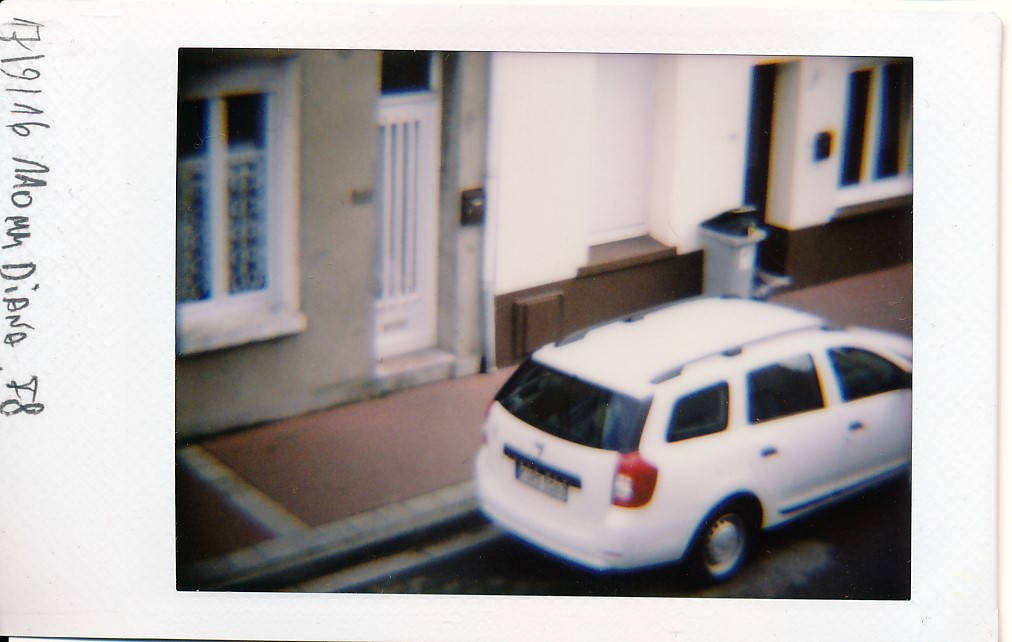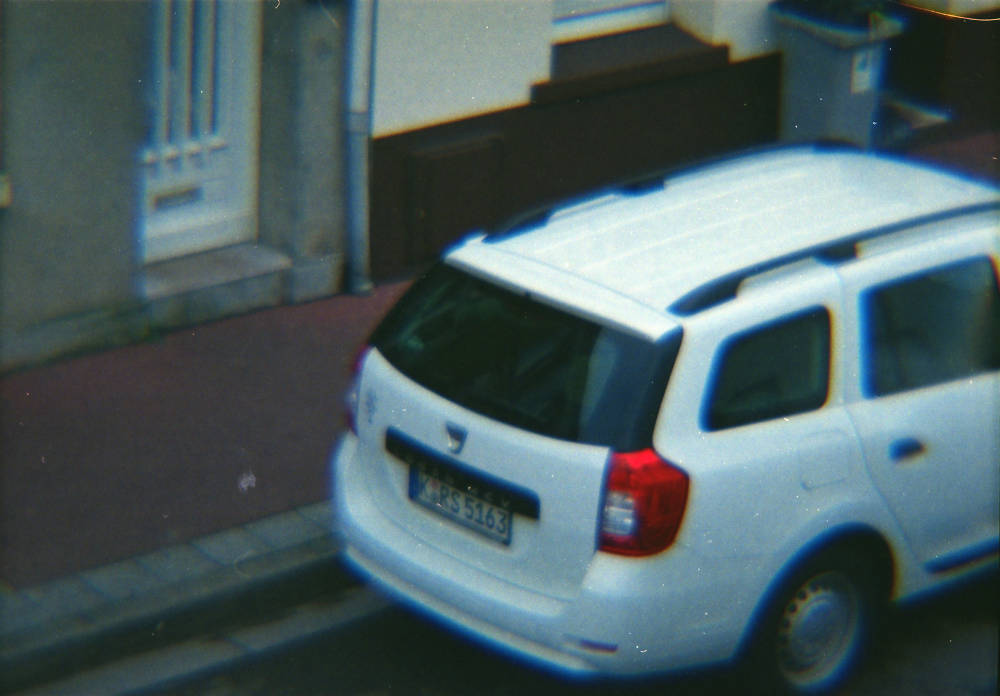The first thing to do is to get the standard lens off the camera.
Lens in locked position, dot on the lens matches the lower dot on the camera.
Lens unlocked. You have to grip the front part of the lens firmly and turn. It sometimes needs quite some force to do so.
Lens off.
20mm fisheye lens, instructions sheet and viewer.
Caps off.
Camera and 20mm fisheye lens.
